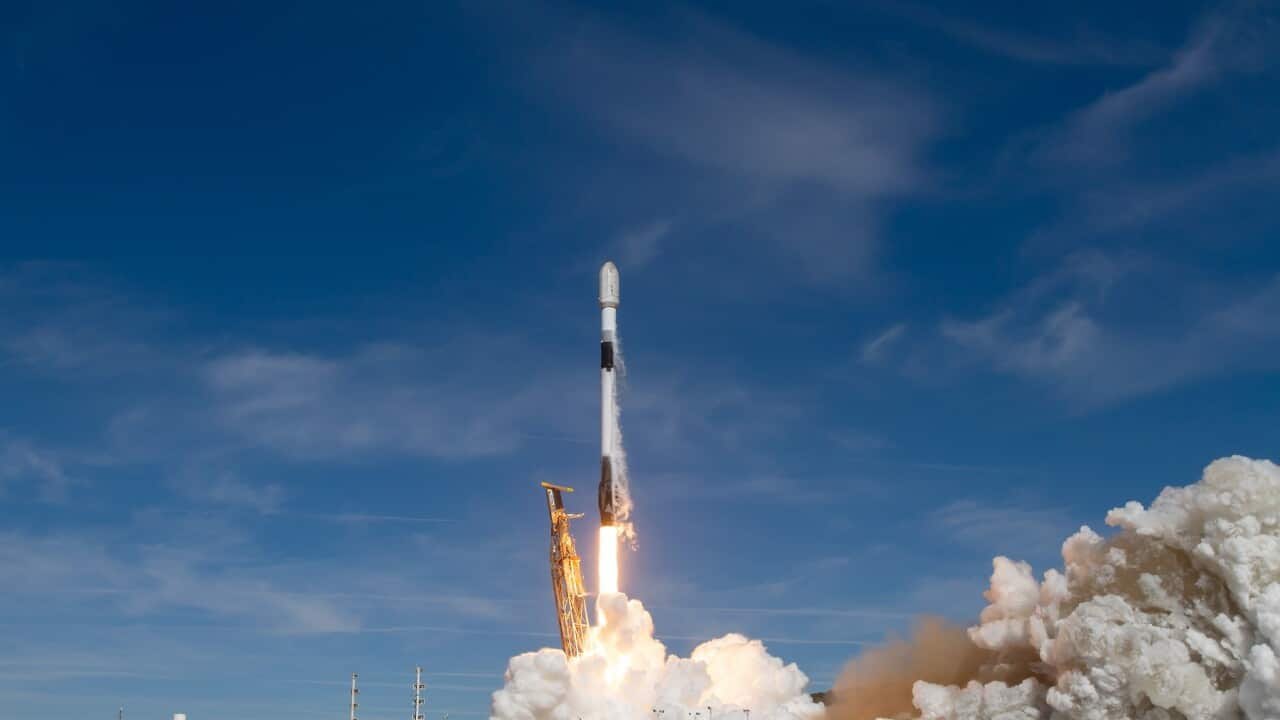TRANSCRIPT
A project years in the making is finally getting off the ground.
Last month, Australia's largest-ever private satellite launched into space from California aboard a SpaceX rocket.
The technology, built by Sydney-based company Space Machines, is designed to service other satellites in orbit.
Think of it as roadside assistance for space - necessary, CEO Rajat Kulshrestha says, as the world become increasingly reliant on satellite technology.
"Things like our communication, navigation, climate are depending on space data and space assets and they fail. And as we get more dependent on them we don't want them failing. We want to know they're safe, they can be repaired, they can be serviced. "
Now, the company is preparing to launch a second satellite - this time aboard an Indian rocket.
The aim of this mission is to make the space industry more sustainable, through technologies like AI, to help mitigate space junk.
"It will be the largest Australian spacecraft to launch on an Indian-made rocket. And so that's exciting - seeing an Australian flag aboard an Indian rocket gives us a lot of excitement."
Space Machines is one of three Australian-based companies to receive Federal Government funding as part of the collaboration.
The Indian High Commissioner, Gopal Baglay, has this message for the grant recipients.
"They are the first contributors in a new chapter for [the] India-Australia relationship. "]]
India's space capabilities are skyrocketing.
The country made history last year as the first nation to land on the South Pole of the Moon.
Australia at the time helped track the landing.
Assistant Defence Minister Matt Thistlewaite expects Australia to play a role in India's next major pursuit - sending humans to space.
"Australia will be collaborating with India to achieve that mission and some of the companies that are receiving grant funding today will be involved in that mission."
West Australian-based company LatConnect60 has been granted almost $6 million in funding.
CEO Venkat Pillay says it will go towards developing and building a low-orbit satellite to collect information on carbon emissions.
"We are playing at this intersection between sustainability and space which is really exciting so there's a lot of push towards great environmental monitoring, greater sustainability.”













